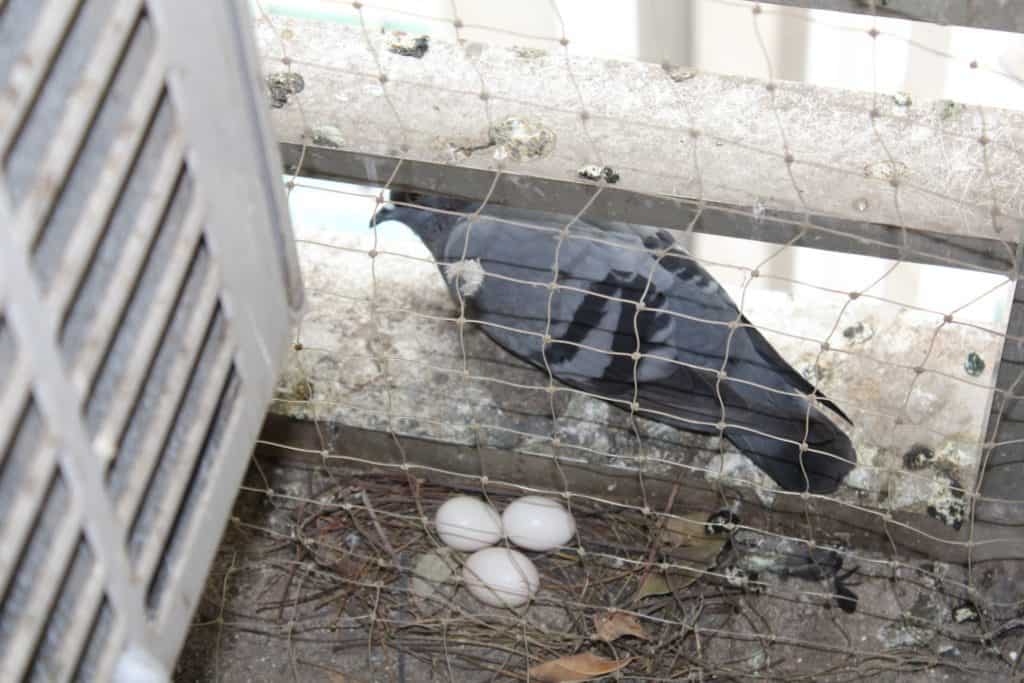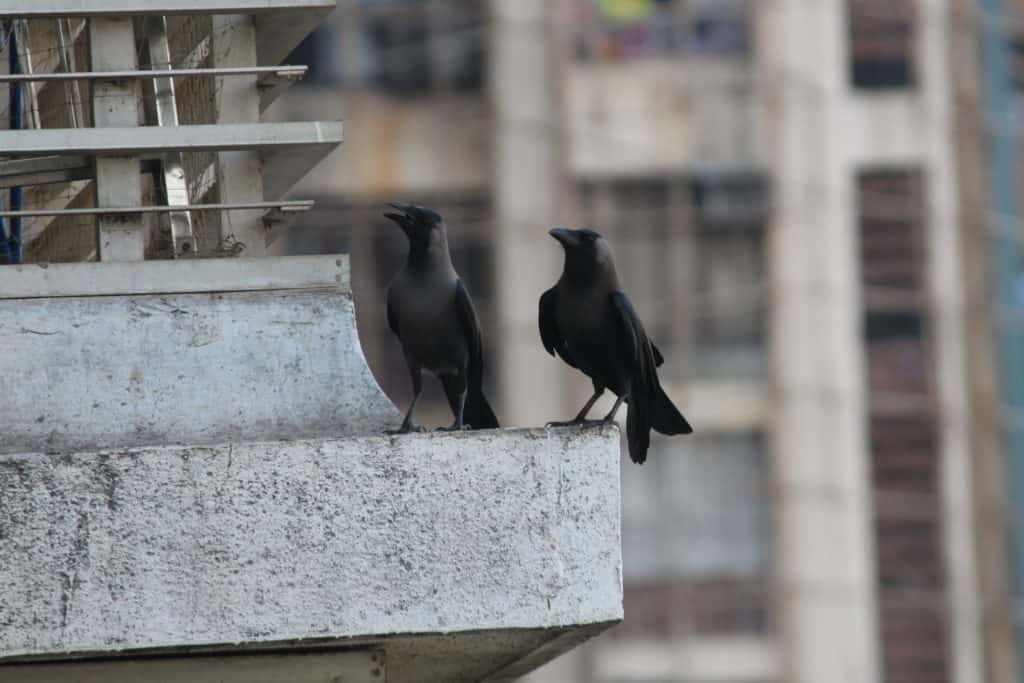We often see people in apartment complexes and neighbourhood shops putting out a whole lot of food (or grains) for the birds – usually pigeons and crows are the recipients.
Ask any of them why they feed the birds and the answers almost always point towards redemption – doing a good deed, reserving a place in heaven, overcoming personal difficulties and the like.
Urban wild animals such as pigeons and crows are meant to fend for themselves! There is something called ‘natural selection’ which allows only for the fittest individuals to survive, getting rid of weak animals and those prone to diseases to maintain the health of that population.
Through ‘compassionate feeding’, in this context feeding grains, fried snacks, leftover cooked food and more, to pigeons and crows (food which is not part of their natural diet), we are unnaturally increasing their numbers and interfering with natural processes that are responsible for maintaining a balance. All wild animals spend energy looking for food and then eating it in time before being attacked by a competitor or predator.
Now with so much urbanisation, predators barely control populations in cities.
Pigeons reach sexual maturity as early as seven months and can lay 1-3 eggs, up to six times a year – a very high rate of reproduction. They are not fussy about where they nest. To add to this, they get food ready on a platter. With the urban comforts we provide, there has been a significant increase in pigeon population, 144% in eighteen years, according to a recent study published in Feb 2020.

The rapidly increasing numbers of pigeons and crows are not going to help us and neither is this helping the environment where we live.
Crows are very smart and bold. They don’t hesitate to enter through the windows in the pursuit of food. We have found them making themselves at home in our house several times. About two summers ago, a crow came in through the window and feasted on the cold mangoes left on the dining table. Needless to say we missed our treat that was instead relished by the winged visitor and now we hesitate to leave the windows open.
With hundreds of them roosting in our apartment premises, it is indeed difficult to leave the windows open. At times there is a splatter of fresh poop in the room and we have feathers floating in through the day.

To keep them out of the homes, some people have resorted to netting the ducts, windows and balconies. However, this does not protect us from the dry flaky poop of the pigeons that can be seen lying all over the ledges of our building and window sills. Reports indicate that one pigeon can produce over 25 pounds (over 11 kilos) of poop in a year! This dried up fecal matter travels in the air as tiny particles and can be a cause of infections especially respiratory ones and can be especially detrimental to those with existing allergies and respiratory issues.
Unnaturally increased number of pigeons and crows do more damage than good – to themselves, to the ecosystem and to us. The next time you feel the urge to put some food out of the window in order to get good karma, just stop! Not feeding them will fetch you better karma. There are several ways to help the society and animals around us, but make sure you back it up with correct information and knowledge.
For those who are fond of birds, you can try observing them instead. There are many different kinds of birds that one can see if you spend some time at your balconies and windows – coppersmith barbets, sunbirds, magpie robins, bulbuls, tailor birds, mynahs, sparrows, munias – to just name the most common ones. You’ll see them on the grass picking up worms or on the gulmohar trees nearby looking for a juicy meal. You’ll see them sipping water from the puddles after the rain or on your balcony plants sucking from the flowers. And at times you’ll just have a curious visitor coming by, like the tailor bird that often comes to check out the bicycles hanging in our balcony! The pigeons and crows too need to fend for themselves, please help them get back to their natural way of life.
Related articles
Feeding birds and animals for 15 years!
Live and let pigeons and dogs live
Finding the hidden birds in urban green spaces
Very useful information ??? and we share with our friends and relatives
Very good thought and indeed true. Difficult to convince our elderly people but after knowing the consequences of their deed it should help.
Nice and useful information..never thought this way…thanks for sharing.
Thank you Sunetra. Even the younger people practice this and are difficult to convince. Let’s hope more people understand the consequences like you mentioned.
Good Article. We all need to help in maintaining the ecological balance.
Very informative read Dipti ! You’ve lightened that area of our decades old practice that is known to be a good deed; which now seems to be so unsuitable to those innocent beings. We all know certain facts that needs alteration but very few pens it down to give it an extra push. Wish you all the best in your support for wildlife ?